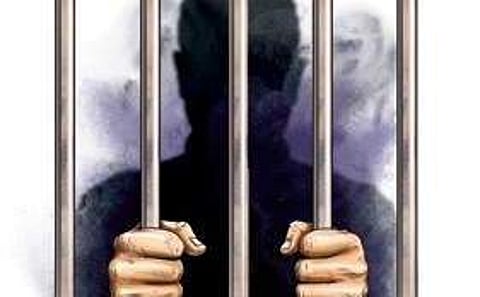Our country's prisons are a ticking coronavirus time bomb
Prisons brimful with undertrials have long been a stark sign of a travesty of justice in India. Now, COVID-19 adds another disturbing element. Jail conditions, abysmal to begin with, offer a kind of petri dish for infectious diseases. Two out of three prisoners in an Indian jail are in enforced proximity—roughly 70% of those behind bars, including a record number of children of prisoners.
The idea of the prison as a place of reformation has long ceased to be our guiding principle. Moral reparation is on no one’s mind. Now, even political prisoners, the ill and the elderly among them, are not spared the harder edge of prison life. It’s often said even the colonial British did not treat political prisoners the way they are now treated. Even in the dark days of Emergency, when virtually the entire political opposition was incarcerated, they were not made to live in subhuman conditions—the controversy over Jayaprakash Narayan notwithstanding, or Gayatri Devi being made to share a cell with commoners. There were no harrowing stories rife about 300 prisoners having to share a single stinking toilet. Social distancing, of course, is an impossibility in such conditions. No prison across the length and breadth of India is anything less than a hell.
Not just prisoners, even jail staff have tested COVID positive—153 prisoners and 92 jail staff in Tamil Nadu alone. In Assam, the situation is so bad the state’s human rights body has sought the CM’s intervention. Maharashtra, of course, is a class apart. It not only tops the COVID charts, its jail conditions are among the poorest. Kerala has at least been taking its remand prisoners for testing instead of awaiting divine mercy. Karnataka too released 1,200-odd prisoners under court direction to decongest jails. We are leaving a time bomb ticking, particularly when the judiciary is working at half-mast. Unless this indeed is the intention, and we do not wish to call ourselves a civilised democracy anymore.

